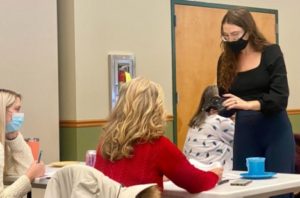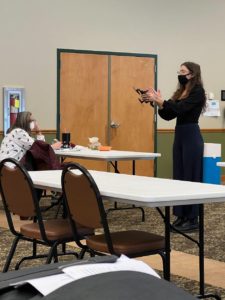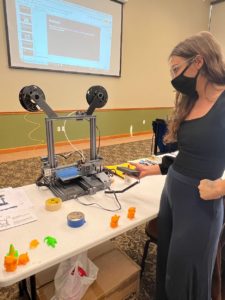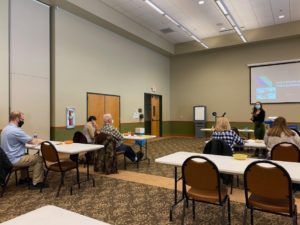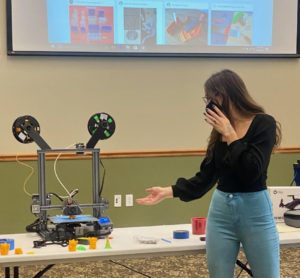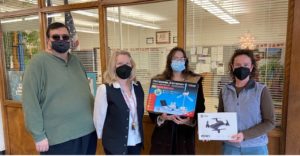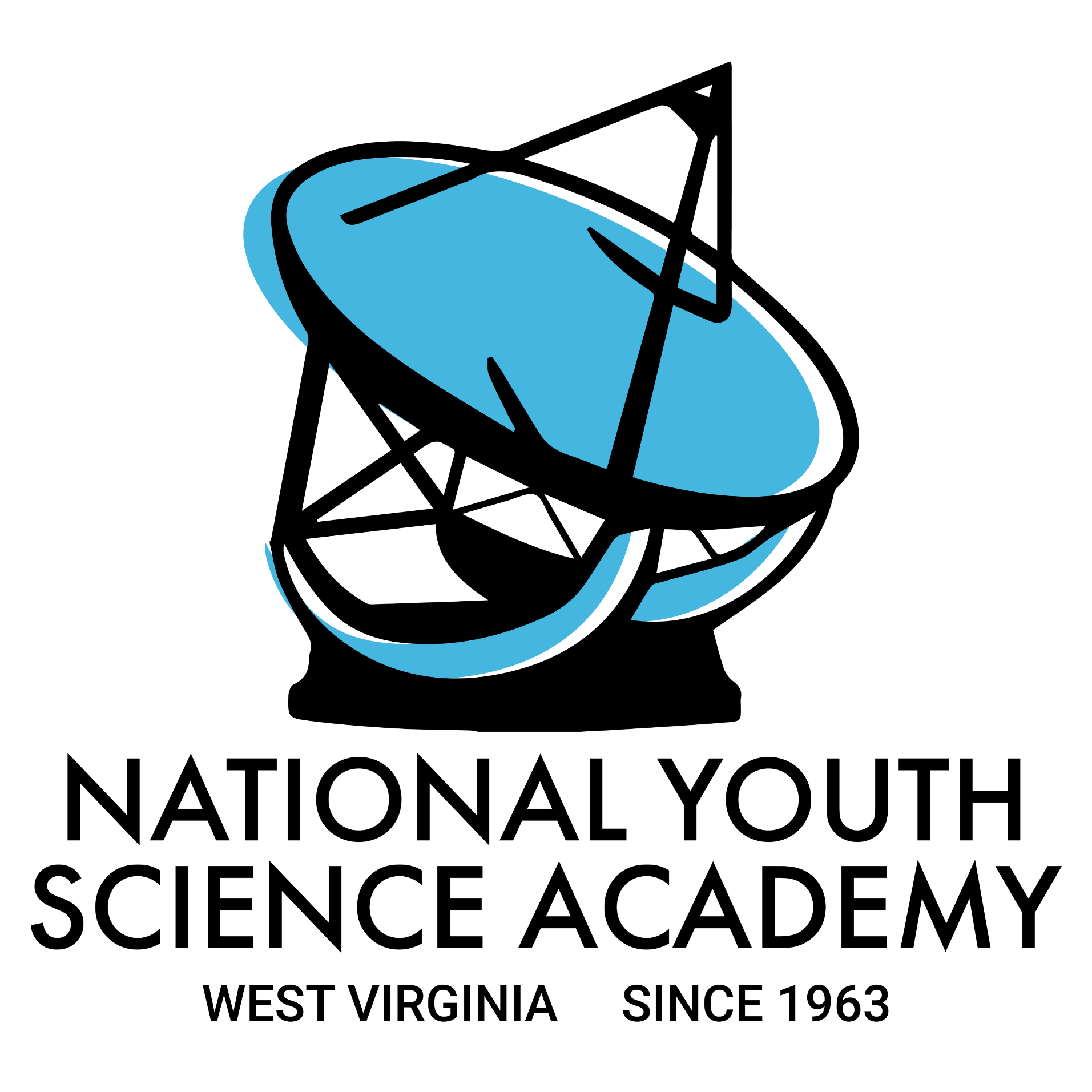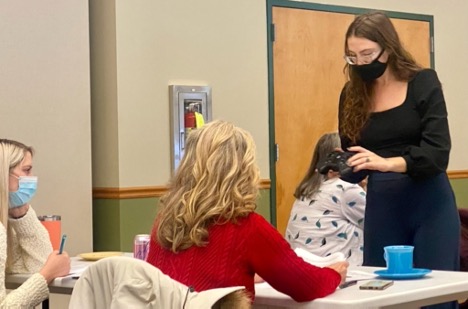Over the course of four days, more than two dozen educators from a six-county region in the Eastern Panhandle braved the wintery conditions and convened at the National Youth Science Center in Davis to learn how to use a variety of new and exciting technologies in their classrooms. The MakerSpace project is a collaborative effort between Eastern West Virginia Community and Technical College in Moorefield, and the National Youth Science Foundation, headquartered in Charleston but with a facility in Tucker County, with funding provided by the Claude Worthington Benedum Foundation. The St. George Medical Clinic was on-site to provide free masks and COVID-19 rapid tests to keep everyone safe throughout the week.
“Our heads are spinning with ideas on how to use these in our classrooms, so we are super thankful”, one Tucker County educator said about the opportunity.
By participating in the program, educators from Grant, Hampshire, Hardy, Mineral, Pendleton, and Tucker counties are being provided with the technology of their choosing free of charge. The options include a combination 3D printer/laser engraver, a computer numerical control (CNC) router, coding robots, drones, and a kit demonstrating different kinds of renewable energy. The trainings were led by AmeriCorps participant Maya Paul, a recent graduate from Eastern and a Tucker County native.
“I am thrilled to have the opportunity to provide STEM technology to schools in rural West Virginia, where I grew up. This has been a super meaningful project for me, and I hope to continue to work like this moving forward in my career. I’m grateful for all the teacher participation given the circumstances and difficulties they’ve faced the past few years.” Paul said about her participation in the endeavor.
“This program will help engage students in an authentic learning experience that develops critical thinking and engineering skills.”, a Hardy County instructor said in response to how this program will help their school.
During her year of service, Maya will continue to educate teachers and librarians in the region about how to use MakerSpace technology in their classrooms and libraries. In addition to providing the technology to educators, Paul is also establishing a permanent MakerSpace at the National Youth Science Center. Once completed, the MakerSpace will be open to the public, serving as a resource for the community, and will be one of the most advanced facilities of its kind in the region, but one with a specific focus on meeting the needs of a rural community with special emphasis on agricultural and entrepreneurial applications.
“We are so excited to be working with Maya on this project. Her enthusiasm is infectious and she’s great at helping the teachers learn how to use this technology and brainstorm ideas for fun and creative ways to engage with their students.” Said Dr. Ryan Haupt, the Director of WV STEM Programming for the National Youth Science Foundation.
“I believe this equipment will help students adapt better to future use of technology in the job place”, one Tucker County teacher said about the equipment they were being provided with and learning to use.
More events are being planned for the spring that will involve teachers and student groups working together to explore the innovative and entrepreneurial possibility of MakerSpace technology. Later this year, the National Youth Science Center’s MakerSpace will be open to the public to continue to introduce the region to the exciting potential of MakerSpace technology.
